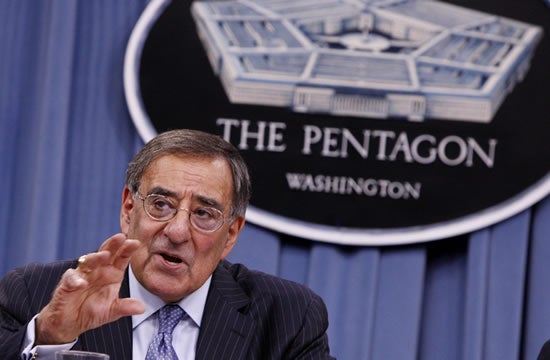Secretary of Defense Leon Panetta is in Asia trying to prevent further escalations in tensions over several territorial disputes.
National elections in South Korea and Japan and a leadership transition in China’s Communist Party have fueled a resurgence of nationalism and historical animosities. Although the rhetoric and political posturing is coming from all three countries, it is the underlying threat of growing Chinese military power and aggressive assertion of its maritime claims that is most responsible for the tensions.
As an ally of both Japan and South Korea, the U.S.is in position to help create opportunities for more intensive trilateral cooperation. We have no such mechanism to manage Chinese grievance and ambition. For that, we must have strong allies and a forward-deployed military and defenses with the credibility to deter Chinese adventurism.
China and Japan both claim the Diaoyu/Senkakus Islands, which are in an oil-rich area and near key shipping routes.Beijing also asserts sovereignty over virtually the entire South China Sea, which includes rich fishing areas and potentially high oil and gas reserves.China’s claims are rejected by several Southeast Asian nations that are much closer to the disputed regions.
Tokyo is also engaged in a dispute with South Korea over the Takeshima/Dokdo Islands, which is exacerbated by South Korean bitterness over Japan’s 35-year occupation of the Korean Peninsula(1910–1945).
While in Tokyo, Panetta and Japanese Defense Minister Satoshi Morimoto announced that the United States would build a second X-Band radar in Japan to augment the bilateral missile defense system. Panetta highlighted that the new radar would “enhance our ability to defendJapan…help forward-deployed U.S. forces, and [protect] the U.S. homeland from the North Korean ballistic missile threat.”
U.S.officials sought to reassure Beijing by emphasizing that the radar was not aimed at China.U.S.officials had previously commented that missiles defenses built against the North Korean threat would also be able to track Chinese ballistic missiles.
The Obama Administration has stumbled in its efforts to address growing regional concerns over Chinese aggressiveness while simultaneously claiming that “it’s not about China.” The Obama Administration’s much-vaunted “Asia pivot” strategy affirming U.S. resolve to protect national interests in Asia has been strong in rhetoric but weak in implementation.
The pivot strategy relies in part on greater allied contributions, an effort hampered by the recent deterioration in relations between South Korea and Japan. The two countries had been on the verge of signing an intelligence-sharing agreement when Seoul pulled out due to rising domestic criticism over an accord with South Korea’s former colonizer. Yet greater military and political cooperation between Seoul and Tokyo would protect South Korean, Japanese, and U.S. national interest in Asia.
Washington should continue urging both allies to strengthen military cooperation to improve deterrence and defense against common threats. However, Washington needs to walk a fine line, neither appearing to take sides in territorial disputes nor becoming embroiled in highly emotional historical issues.
The Obama Administration should worry less about repeatedly “reassuring”China and instead make clear to Beijing that the United States is taking steps at the request of Asian nations that are worried by greater Chinese assertiveness and attempts at intimidation.
